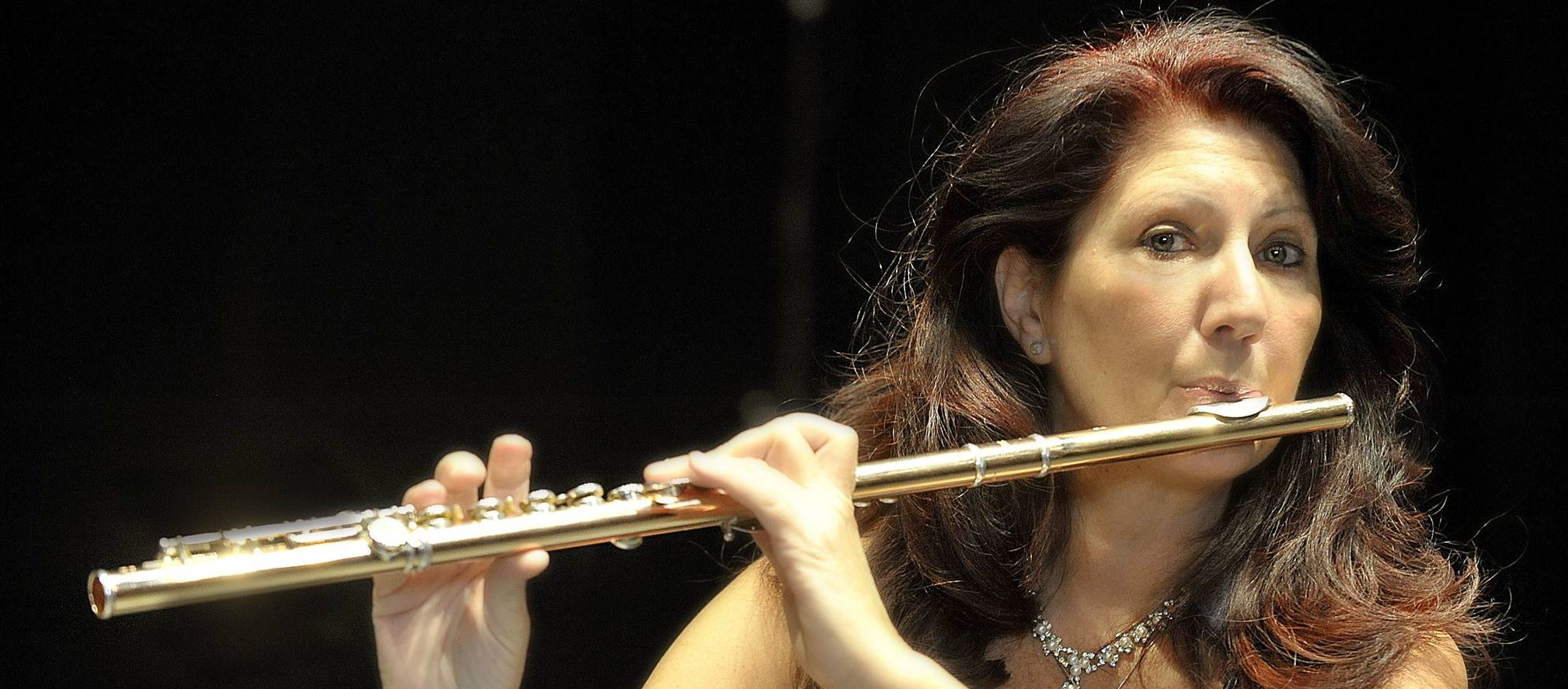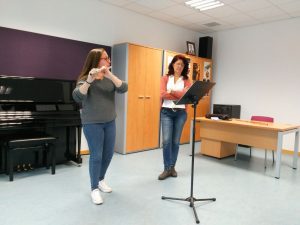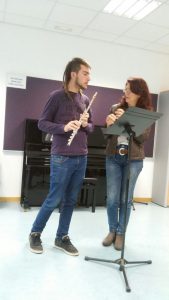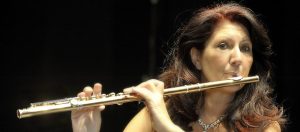
Luisa Sello studied in Paris with R. Guiot. She is one of the most surprising personalities of contemporary art, an elegant flutist and one of the most applauded interpreters of cultured music in Italy. She has performed as a recitalist and chamber musician in different countries of Europe, United States, South America, Russia and Asia. She has been guest of the Wiener Symphoniker, the Miami Great Symphony Orchestra and the Salzburger Krammerorchester.
Luisa Sello visited the Conservatorio Superior de Música de Valencia last January. During the master classes she offered, many composers like Bach, Mozart, Sancan, Ibert or Dutilleux were played through their concerts and sonatas. Students could learn a lot of Luisa Sello, because of her huge experience in teaching and her talent.
“Notas de paso” took advantage of the visit and we made an interview to Luisa, who pleasantly answered to our questions.
.
Which is your origin conservatory? Wh y did you decide coming to Valencia?
y did you decide coming to Valencia?
The conservatory where I teach as tenure professor is Conservatorio Giuseppe Tartini in Trieste, Nord-est Italy. I love Valencia and I’ve already been there for some musical project with contemporary music. I wanted to be in contact with the academic section as well.
What do you think about flutist students of Valencia?
The level is very high, in relation of other academic studies in Europe. Students have a good preparation in repertoire and without technical problems. It was very interesting that each student uses the ‘stream of air’ in a very good way. It is not so common. Obviously they have a good flute school.
.
Could you tell me the differences between conservatories and teaching in Spain and Italy?
There is not  so much differences. Bachelor degree includes 3 years of subjects like history of music, orchestra, chamber music, flute and harmony. Master degree includes 2 years of specialisation in performing (this means that the students should play the main soloist repertoire). I think the same is in Spain, as I could observe.
so much differences. Bachelor degree includes 3 years of subjects like history of music, orchestra, chamber music, flute and harmony. Master degree includes 2 years of specialisation in performing (this means that the students should play the main soloist repertoire). I think the same is in Spain, as I could observe.
.
Have you worked in some investigation field?
If you mean ‘speciality field’ I can say that I am one of the specialist of baroque praxis on the modern flute and a specialist of extended technique for contemporary music.
Which is/are, the best experience/experiences that music has provided to you?
It is always a great experience to perform in concert, especially when you can realize that the people enjoy. You feel yourself useful for some empathetic reasons. Our job doesn’t produce concrete result but is able to communicate sensations and emotions, and this (when happens) is the most joyful feeling you can have back from making music.
Por Neus Albors Oliva



Dejar una contestacion